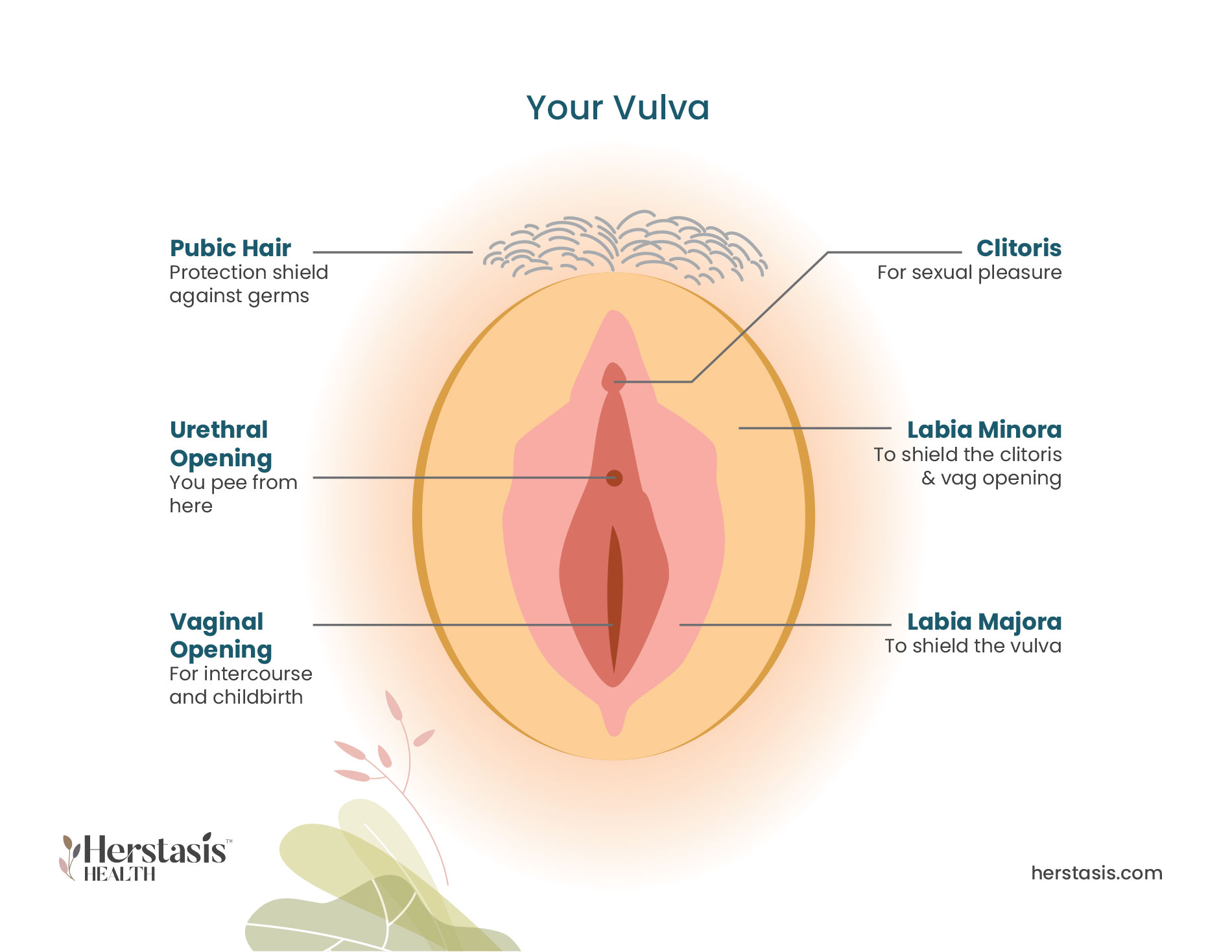Understanding Sexual Health
Sexual Desire
Sexual Arousal
Sexual Orgasm
Intercourse Pain
Other Sexual Issues
Self-care & Natural Remedies
Therapy & Treatments
Therapy Sexual Desire
Therapy Sexual Arousal
Therapy Sexual Orgasm
Therapy Intercourse Pain
Therapy Vaginal Dryness
Understanding Sexual Health & Menopause Sexuality
Sexuality is a fundamental part of the human experience that relates to the sexual habits and desires of a person. Sexuality is a very personal characteristic. It is difficult to determine what is or is not ‘normal’ for an individual because every person has their own definition based on individual culture, background, personal sexual experiences, and biology. Even the World Health Organization can’t provide a specific, non-subjective definition! They define sexual health as a state of physical, emotional, mental and social well-being related to sexuality; it is not merely the absence of disease, dysfunction or infirmity.
Despite the variability in definitions, there are a few basic concepts that are required for an individual’s healthy sexual response and function. They are:
- comfort with their degree of desire for sex
- comfort with their ability to enjoy sex
- comfort with their levels of sexual desire, response, and function
Physiological, psychological, social and emotional factors can all be involved in problems with sexuality.

Female Sexual Dysfunction (FSD) has four formal categories: problems with desire, arousal, orgasm and pain. Research shows that 30-50% of peri- and postmenopausal women experience sexual problems in one or more of these areas.
Experiencing sexual problems is not the same thing as being bothered or distressed by them. Perimenopausal women report a much higher frequency of distressing sexual problems compared to post-menopausal women, even though the actual prevalence of sexual problems is lower. So during the menopausal transition, women have fewer sexual problems than post-menopausal women, but they are more distressed by them. [1]
Self-care & Natural Remedies for Sexual Health
Adapting to changes in your sexuality and sexual health can be hard when you are processing the fact that your body is changing. However, your brain is one of your best sex organs! Because the basis of sexuality is so complex and individual, there are many steps you can take to accommodate any changes to your regular sex life, some of which may in fact lead to better and more satisfying sex. This can happen because when you have to start speaking openly and communicating about your sexuality, you may find that you are in a better position to ask for exactly what you need and want.
There are some basic steps you can take to improve your sexuality and adjust to any sexual changes. TALK! Talk to your partner. Tell them what is happening for you. They are part of your sexual experience, so they should also be part of your sexual solutions.

When you avoid sex it can have an impact on your partner and create stress in the relationship. When there is stress in the relationship, satisfying sex becomes more difficult to achieve. To manage this, try:
- Enjoy your time together! Make (and follow through on) plans for dates, seduction, and intimacy.
- Reduce your focus on sex and orgasm, and increase your focus on having fun and relaxing time together – enjoy foreplay, give or recieve massages, or try new variations of activities you have enjoyed. While orgasm is definitely nice to have, it doesn’t have to be the only thing that matters every time you have sex.
- Consider short-term couples counseling with a therapist, particularly one who specializes in sex therapy.
- If you are experiencing pain, ensure you are using vaginal lubricants (talk to your pharmacist or your healthcare provider and see the Therapy Section below).
- Focus on relaxing before intimacy with a bath or a meditation. Remember that it’s hard to stay in the moment when you are tensing up!
- If you are experiencing any discomfort at all, you may also consider trying new positions, including ones that allow you to control the depth of penetration.
- If you are comfortable, experiment with erotica and masturbation. Try new things!
If you do not have a partner, it is still normal and proper to be concerned about changes to your sexuality. TALK. Talk to trusted family or friends or your healthcare provider.
In some cases, women may have been experiencing unsatisfactory sex over the years and have found a way to cope. In other cases, women may not be comfortable being open about their needs and desires because they are embarrassed or ashamed of them. In these cases, the menopausal transition can be seen as a great opportunity to make changes. Women at mid-life have so much more experience than they had when they started having sex – they can now take advantage of their stronger voice and make the time to address hang-ups or mental blocks.
Despite how often women in the menopausal transition or postmenopause are troubled by sexual problems, most don’t discuss these problems with their healthcare providers. In fact, a survey of US women ages 57 to 85, showed that only 22% of women reported that they had discussed sex with a physician since they turned 50. [4] Talking to your healthcare provider should be a first step because, as with many health issues, women are in a position where they must advocate for themselves.
Sex can be a loaded topic because it is so affected by cultural and religious norms, but don’t forget, it is an important part of who you are – and you owe it to yourself to take care of your sexual health just as you would take care of any other health issue that is impacting you.
Therapy & Treatment for Sexual Health
At age 40 find a reliable, educated primary care provider familiar with recognizing and treating symptoms of perimenopause and menopause. The North American Menopause Society provides a list of menopause practitioners.
The Science
Information on how the menopausal transition interacts with your sexual health.
postmenopausal women
never discussed their vaginal atrophy symptoms with a healthcare provider
If your vaginal dryness is caused by low estrogen levels, your healthcare provider may prescribe topical estrogen therapy. There are three methods of applying vaginal estrogen:
- Ring: You or your doctor can insert a soft, flexible ring into your vagina. It releases estrogen directly to the vaginal tissues. The ring lasts about three months so it will need to be replaced regularly.
- Tablets: These tablets are inserted into your vagina with a disposable applicator.
- Cream: The cream is inserted into your vagina using an applicator.
There are over-the-counter vaginal moisturizers as well. Speak to your pharmacist or your healthcare provider to get a recommendation. Water-soluble lubricants (such as Astroglide or K-Y Jelly) can also be used on an as-needed basis. Non-water-soluble lubricants, such as Vaseline, are not recommended if you are using condoms for either contraception or for prevention of STIs because they can weaken latex and reduce the effectiveness of the condom. [5]
During the menopausal transition, the state of the vagina often changes. Vaginal dryness and pain are symptoms of vaginal atrophy (atrophic vaginitis) that occur as a result of lowered estrogen levels. The tissues in the vagina weaken, get thinner, dryer, and may get inflamed, causing pain, burning, or discharge.
MYTH
While the changes happening to your body during the menopausal transition can impact a woman’s sexual health and sexuality, there are many treatment options available. Talk to your healthcare provider to see if you need any medical interventions such as a prescription for hormone therapy that can help with changes like vaginal dryness.
Oh yes they do!
A national study of 5,045 older women [11] showed the following:
| Sexual activity among older US women | |||||
| Age (years) | 50-59 | 60-69 | 70-79 | 80+ | |
| Masturbated in previous year | 54% | 46% | 36% | 20% | |
| Had intercourse (penis-vagina) in previous year | 51% | 42% | 27% | 8% | |
| Received oral sex in previous year | 34% | 25% | 9% | 4% | |
MYTH
While variable hormones during the menopausal transition can impact sexuality, there are many effective treatments that can restore sexual function. These include hormone therapy, vaginal lubricants, sexual aids, and counselling or therapy. Contrary to this myth, many women experience an increase in desire. This could be hormonal, but is also influenced by factors such as lowered stress and enjoying the privacy that comes when children move out of the house.
Compiled References
[1] Shifren JL, Monz BU, Russo PA, Segreti A, Johannes CB. Sexual problems and distress in United States women: prevalence and correlates. Obstet Gynecol. 2008 Nov;112(5):970-8. doi: 10.1097/AOG.0b013e3181898cdb. PMID: 18978095.
[2] https://www.menopause.org/for-women/sexual-health-menopause-online/sexual-problems-at-midlife
[3] https://www.webmd.com/menopause/guide/sex-menopause
[4] Lindau ST, Schumm LP, Laumann EO, Levinson W, O’Muircheartaigh CA, Waite LJ.
A study of sexuality and health among older adults in the United States. N Engl J Med
2007;357:762-774.
[5] https://www.webmd.com/women/guide/vaginal-dryness-causes-moisturizing-treatments
[6] Josefson D. (2000). FDA approves device for female sexual dysfunction. BMJ (Clinical research ed.), 320(7247), 1427.
[7] Billups KL. The role of mechanical devices in treating female sexual dysfunction and enhancing the female sexual response. World J Urol. 2002 Jun;20(2):137-41. doi: 10.1007/s00345-002-0269-0. Epub 2002 May 15. PMID: 12107545.
[8] Rosen RC, Shifren JL, Monz BU, Odom DM, Russo PA, Johannes CB. Correlates of sexually related personal distress in women with low sexual desire. J Sex Med. 2009 Jun;6(6):1549-1560. doi: 10.1111/j.1743-6109.2009.01252.x. Epub 2009 Mar 30. PMID: 19473457.
[9] Female Sexual Dysfunction: ACOG Practice Bulletin Summary, NUMBER 213. Obstetrics & Gynecology 134(1):p 203-205, July 2019. | DOI: 10.1097/AOG.0000000000003325
[10] Johannes CB, Clayton AH, Odom DM, Rosen RC, Russo PA, Shifren JL, Monz BU. Distressing sexual problems in United States women revisited: prevalence after accounting for depression. J Clin Psychiatry. 2009 Dec;70(12):1698-706. doi: 10.4088/JCP.09m05390gry. PMID: 20141709.
[11] Herbenick D, Reece M, Schick V, Sanders SA, Dodge B, Fortenberry JD. Sexual behavior in the United States: results from a national probability sample of men and women ages 14-94. J Sex Med. 2010 Oct;7 Suppl 5:255-65. doi: 10.1111/j.1743-6109.2010.02012.x. PMID: 21029383.
Not AI generated.
Original content, last updated February 22, 2023.
© 2024 Herstasis® Health Foundation



